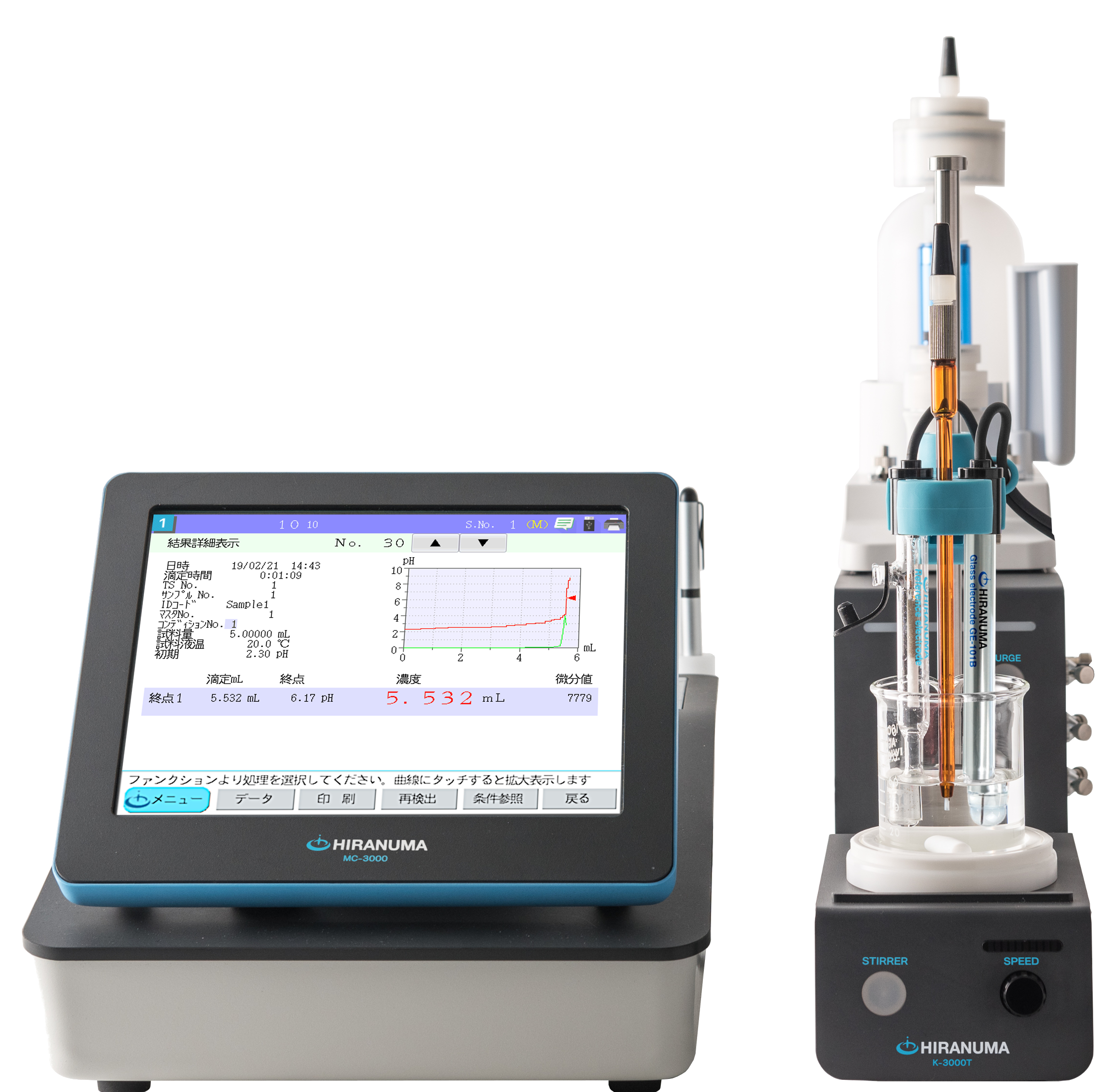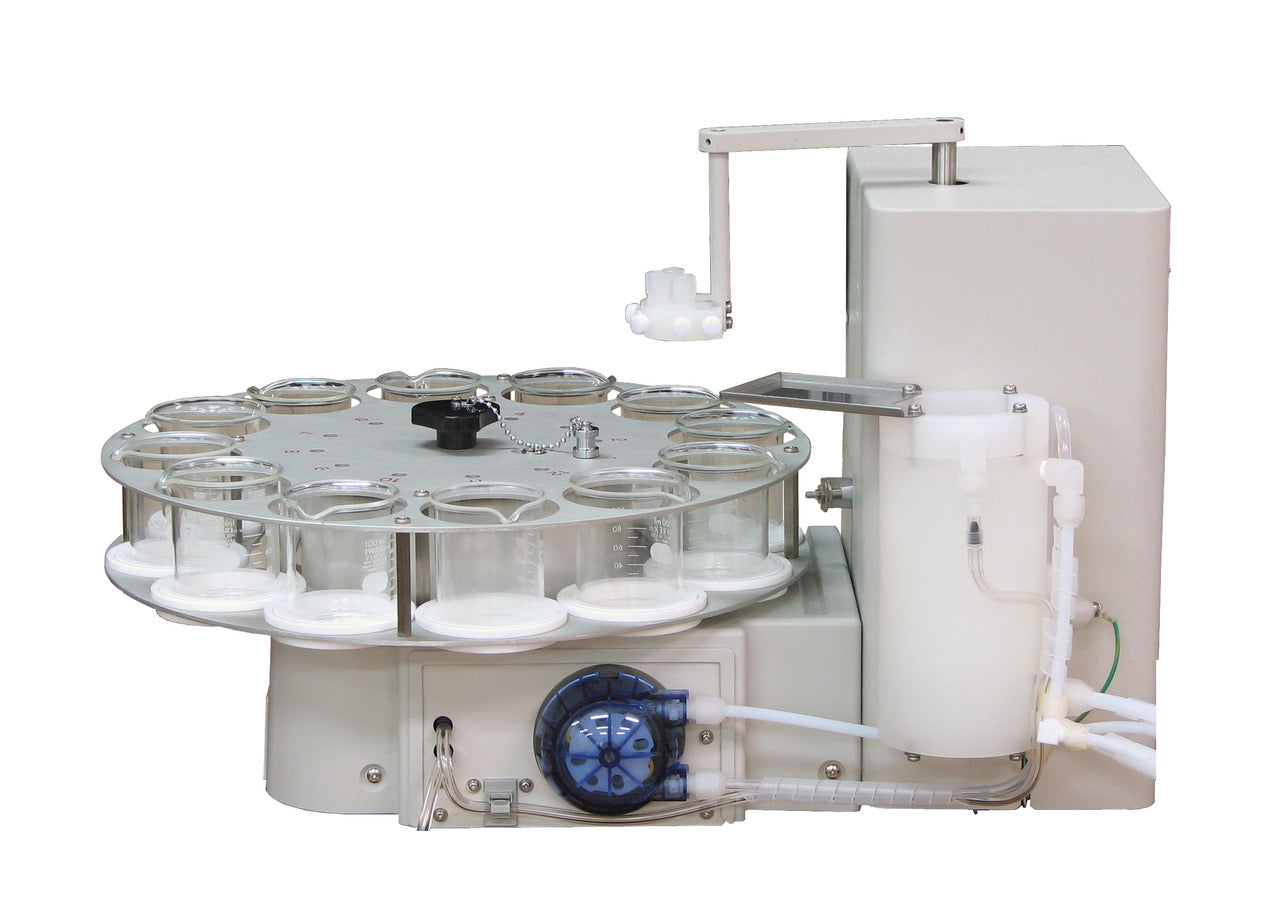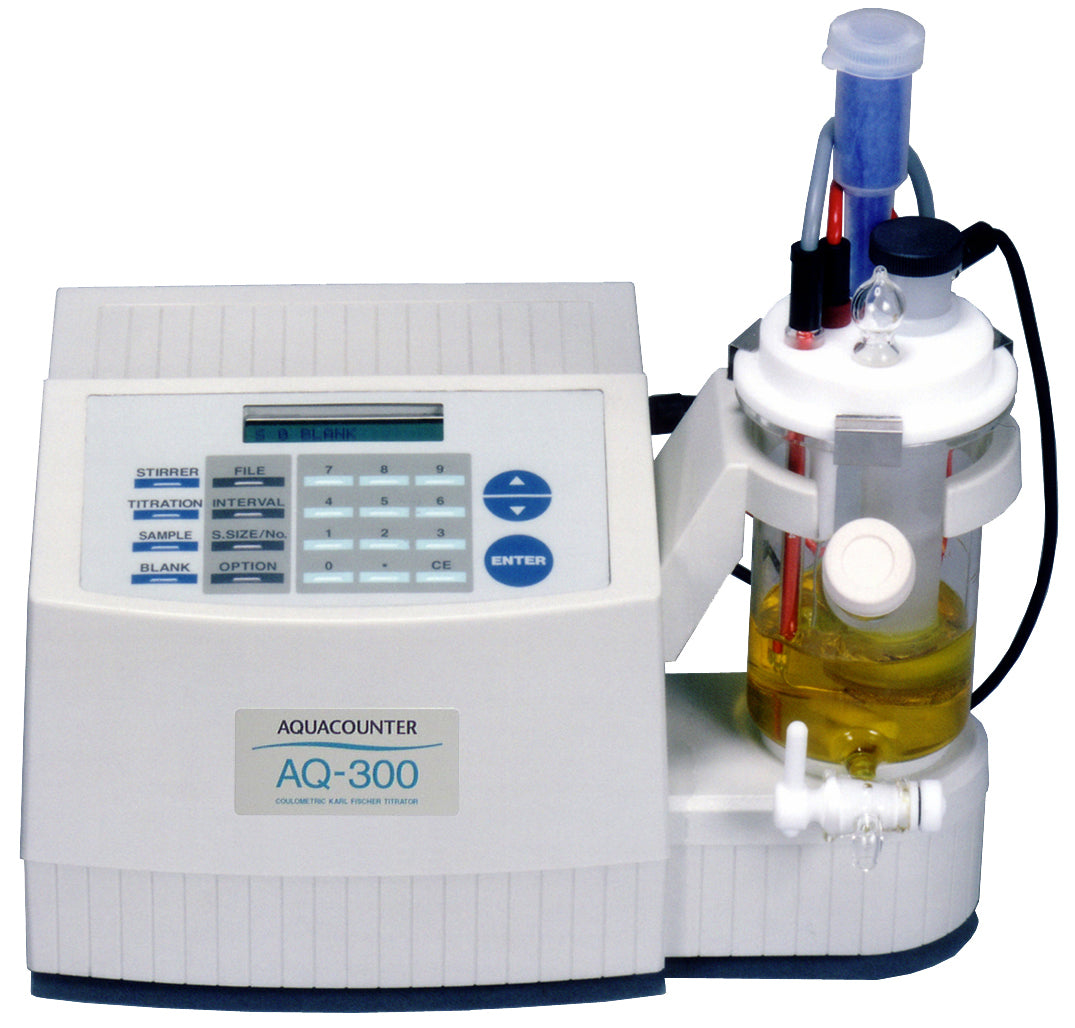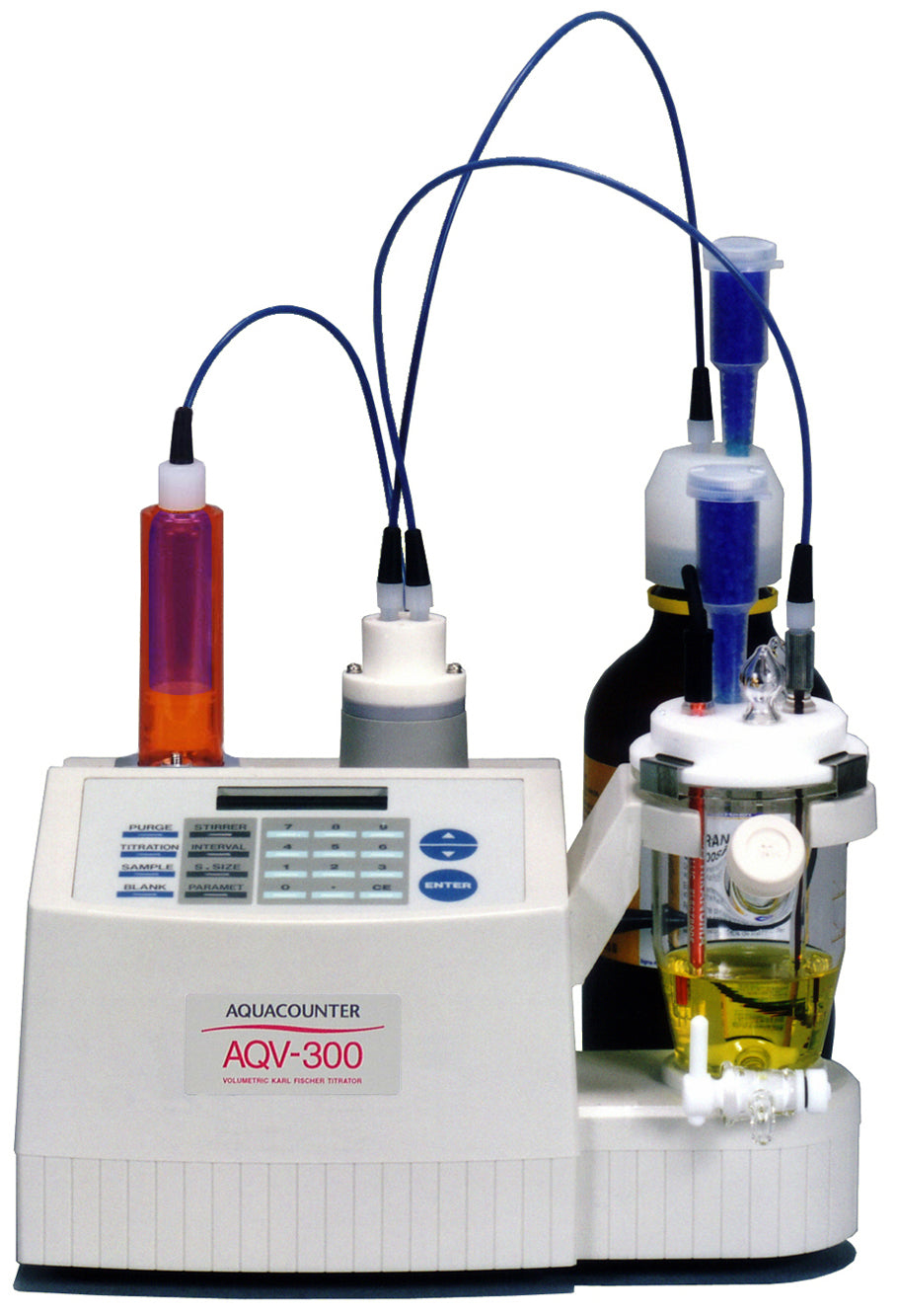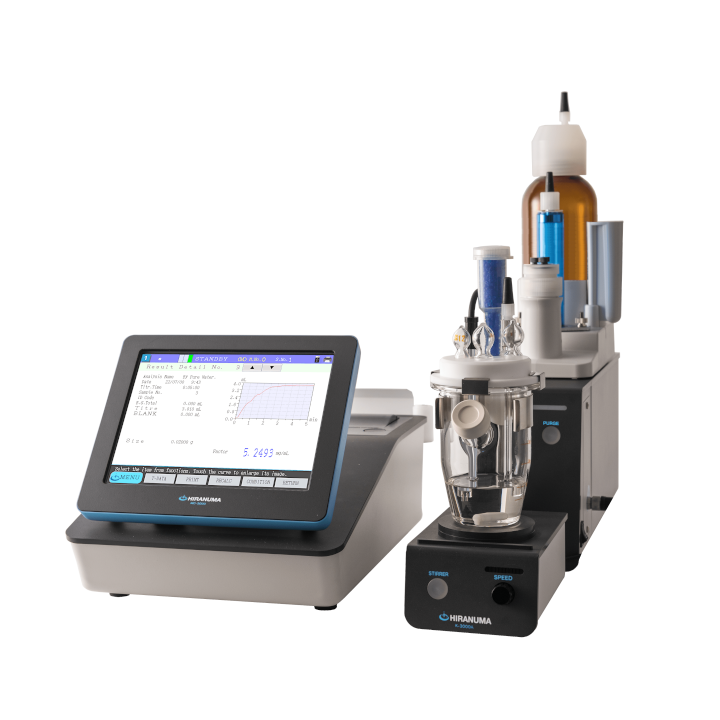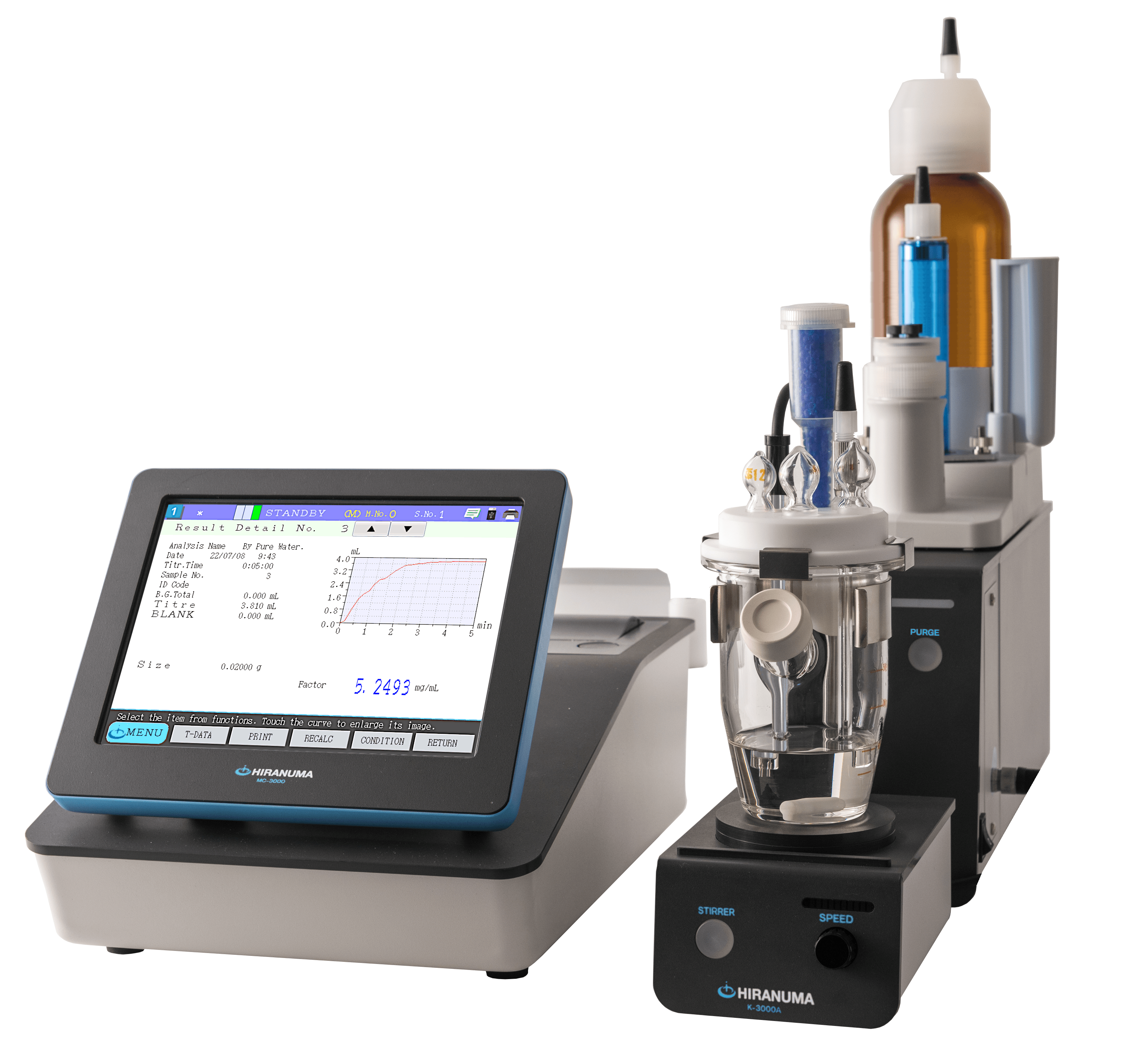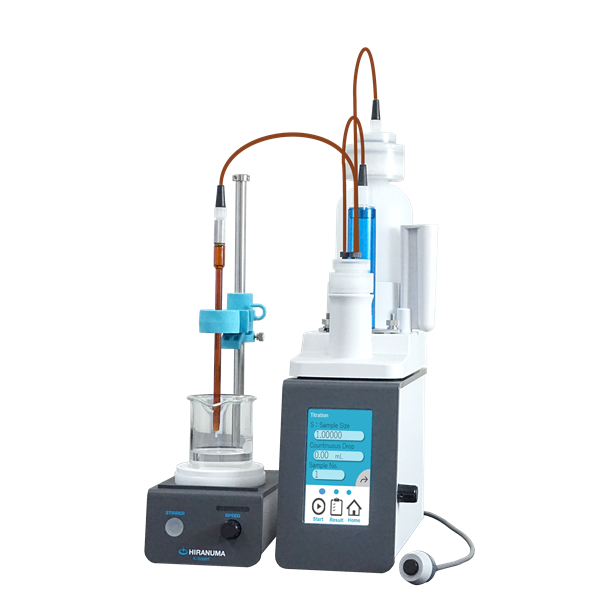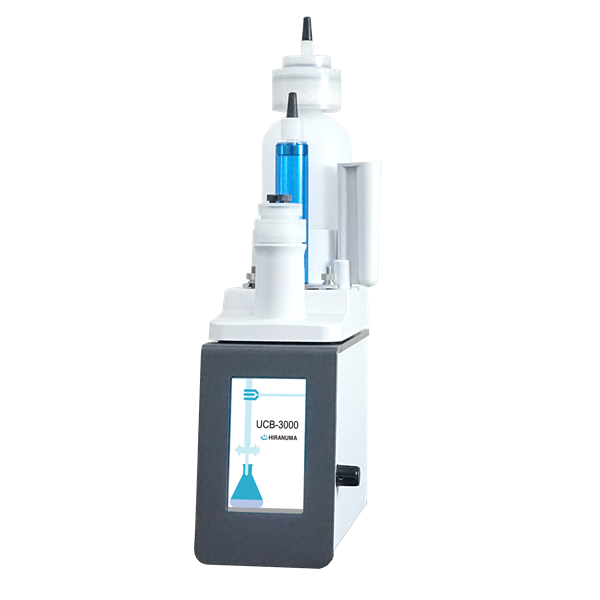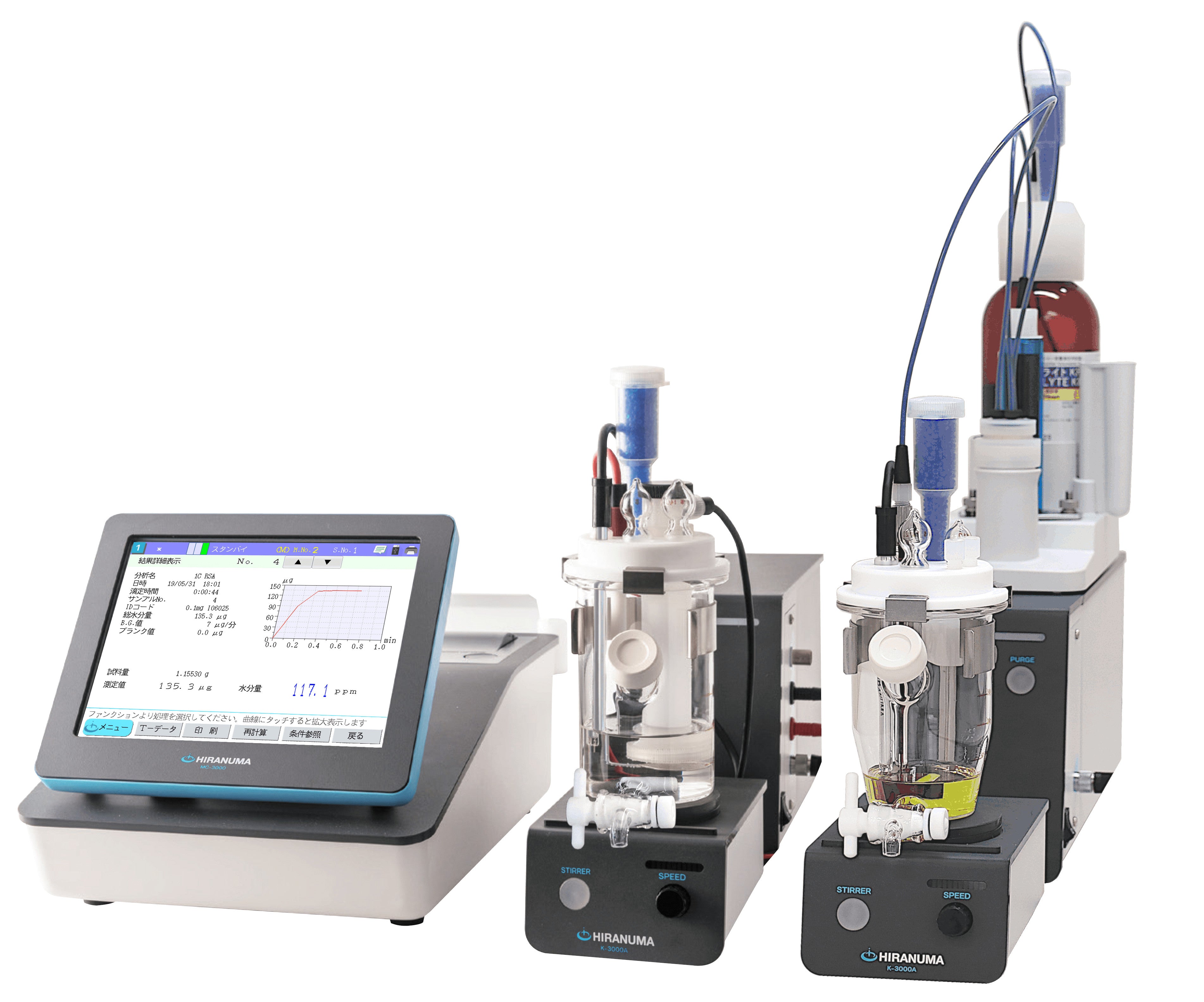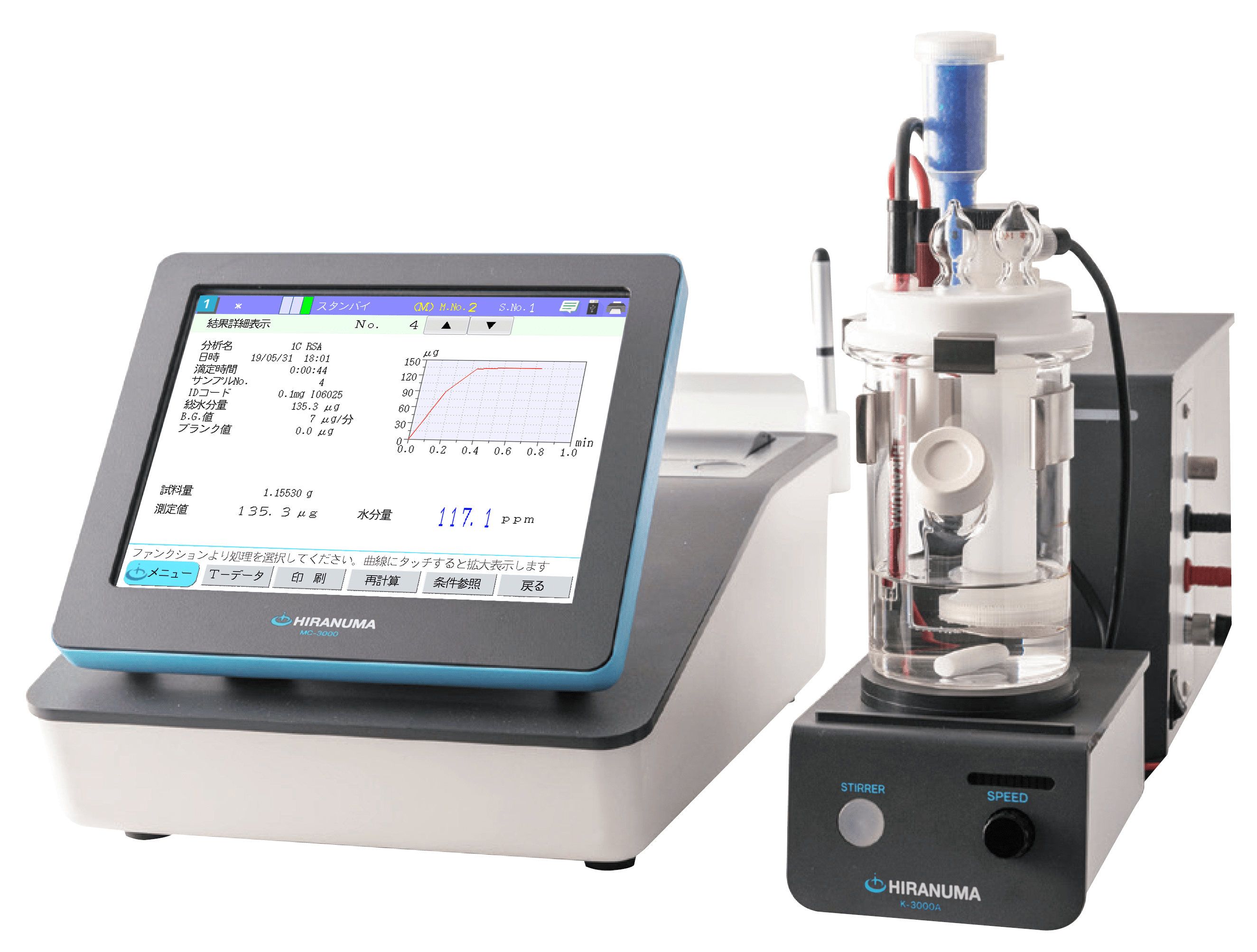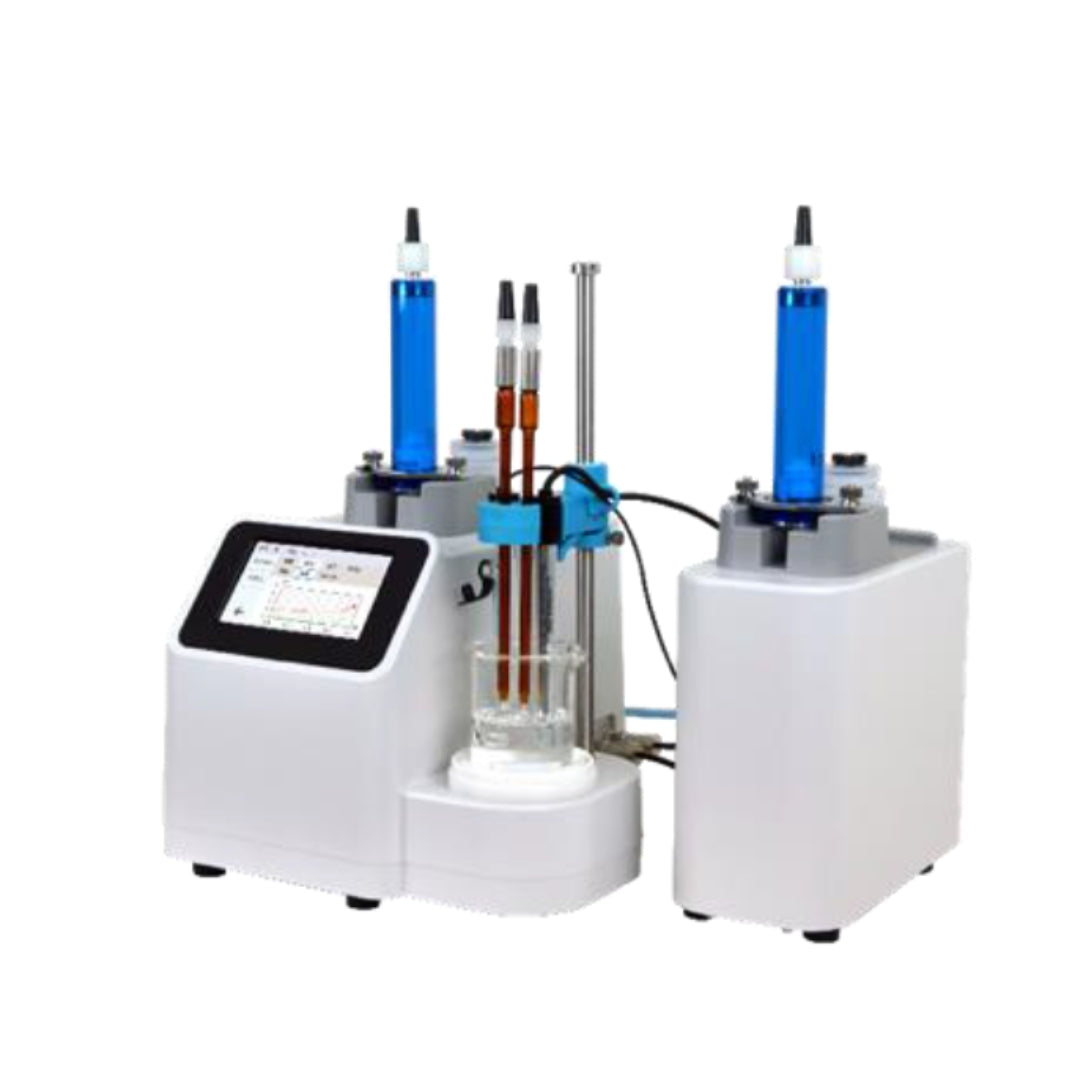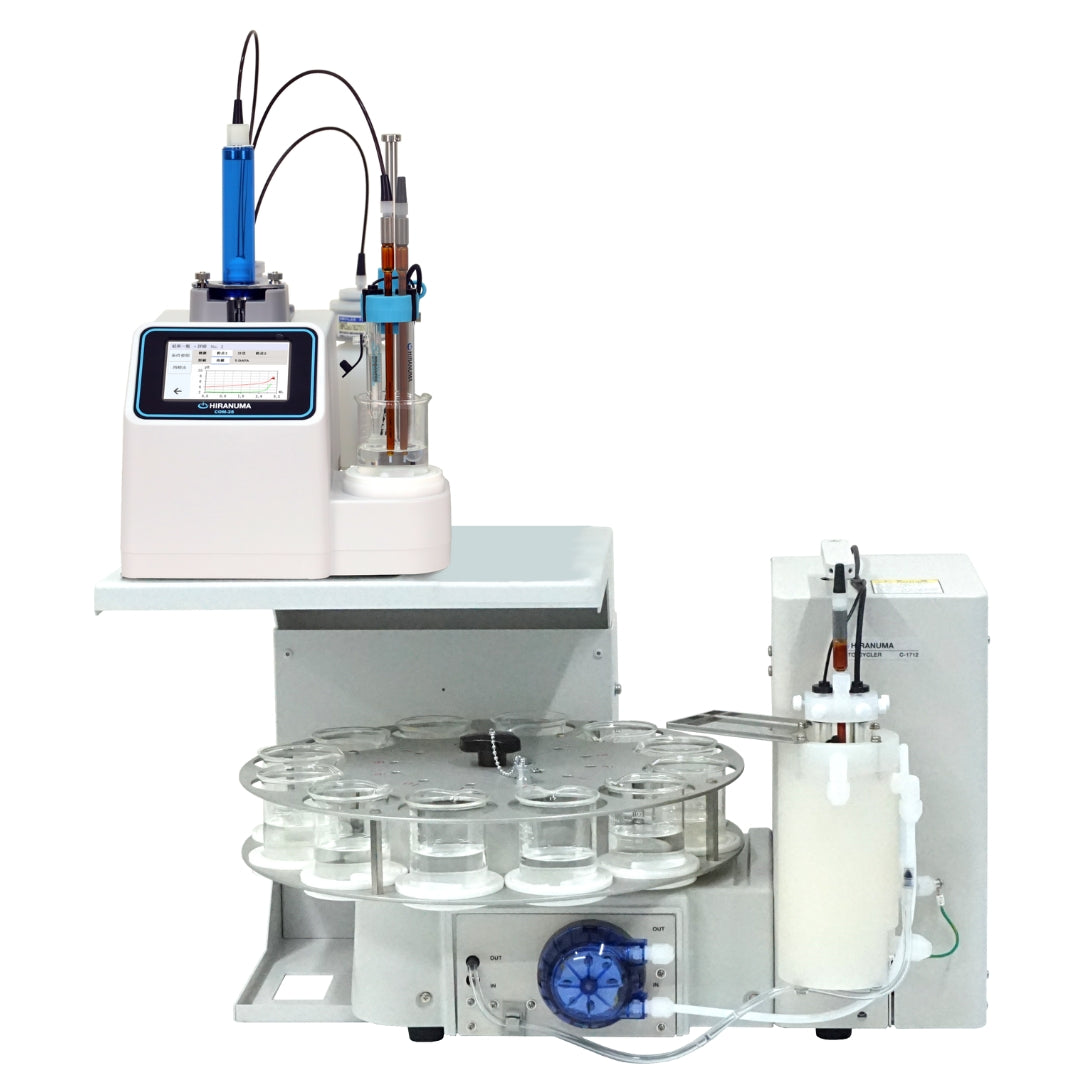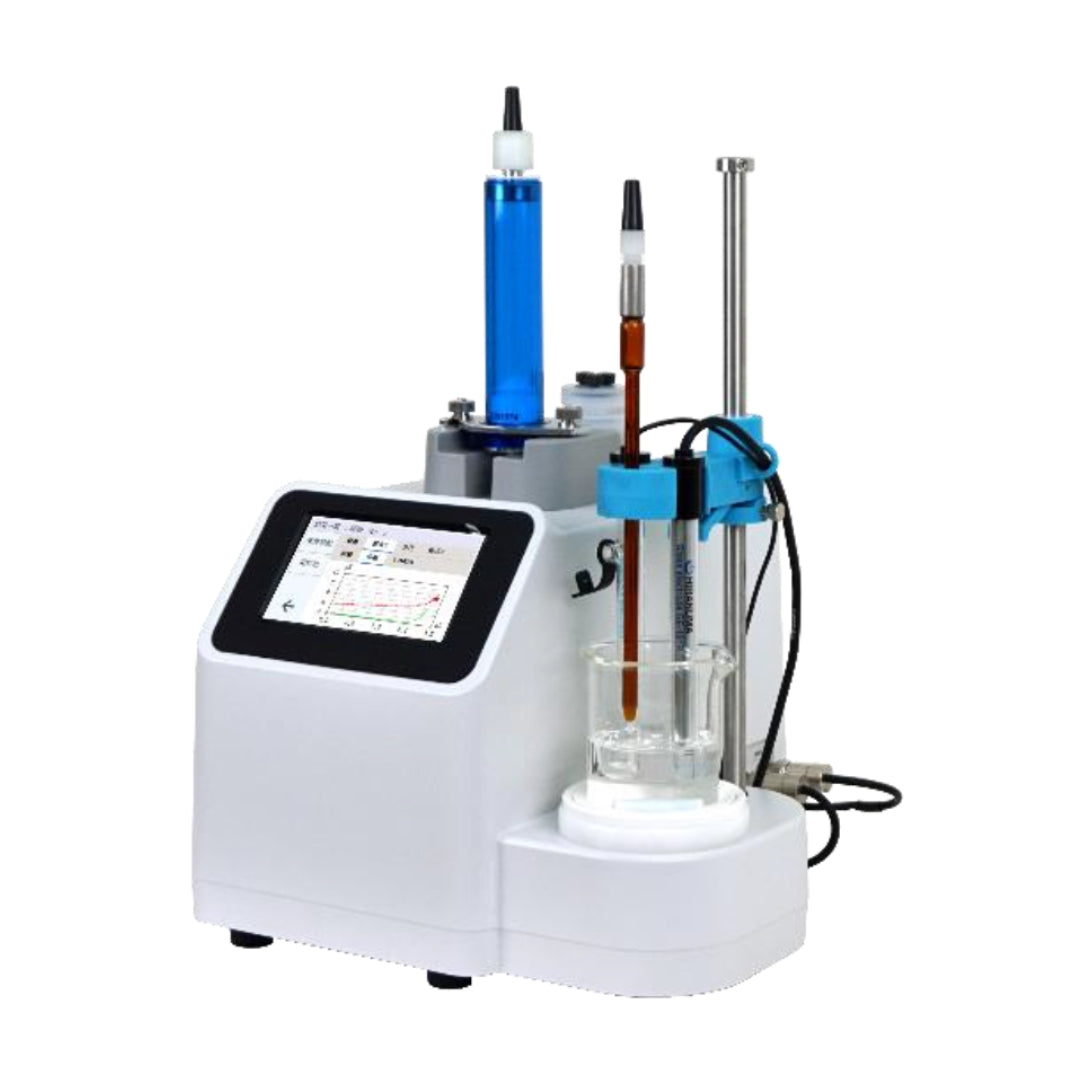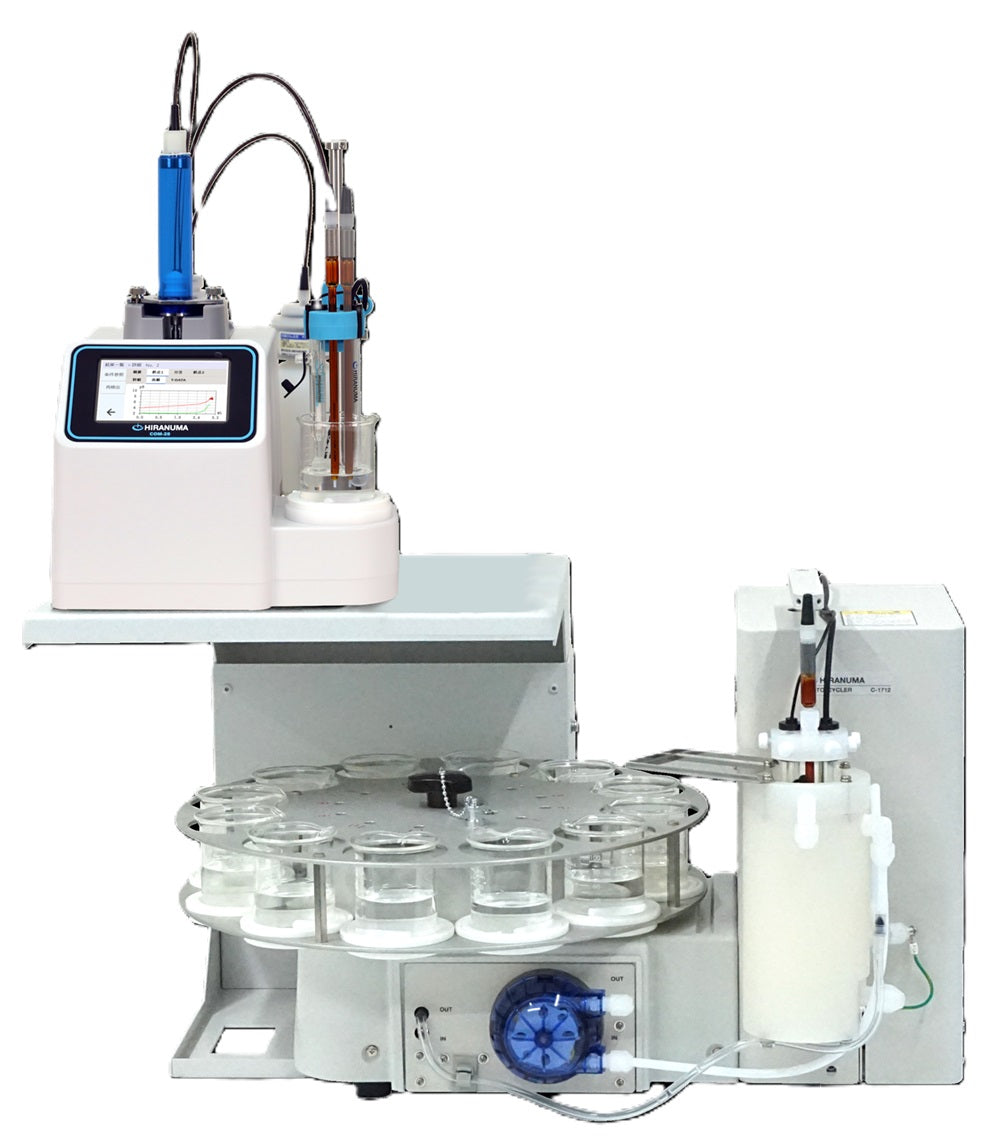| HIRANUMA APPLICATION DATA | Automatic Titrator | Data No. | L3 | Jun.6. 2017 |
| Lubricant petroleum products | Base number in lubricating oil (Perchloric acid method) |
1. Abstract
The base number of lubricant oil is one of the important index for judging its quality. Measurement of base number is defined in several standard test methods. It is indicated by “milligrams of potassium hydroxide equivalent weight to acid required to neutralize basic components contained in 1 g of the sample”. There are two methods of base number, hydrochloric acid method and perchloric acid method. In this article, perchloric acid method will be introduced. The international standard methods for base number with perchloric acid method are shown as bellow.
・ JIS K2501 2003:Petroleum products and lubricants – Determination of neutralization number
・ ASTM D2896-06 : Standard Test Method for Base Number of Petroleum Products by Potentiometric Perchloric Acid Titration
The potentiometric titration process is as follows:
1) Weigh sample exactly corresponding to base number and dissolve it in a titration solvent.
2) Immerse glass electrode and reference electrode.
3) Start titration with perchloric acid in acetic acid solution.
There are two procedures for perchloric acid titration, A and B on ASTM D2896. Procedure A and B use different titration solvent volume and sample weight. In this article, measurement with procedure B will be applied. Inflection point is defined as the end point if it obtained sharply. If it’s not clear, back-titration method could be applied. Back-titration method is mentioned in “HIRANUMA APPLICATION DATA No. L11”.
2. Configuration of instruments and Reagents
| (1) | Configuration of instruments | ||
| Main unit | : | Hiranuma Automatic Titrator COM Series | |
| Electrode | : | Glass electrode GE-101B | |
| : | Reference electrode RE-201Z Inner solution should be changed; it is described below. to below described |
||
| (2) | Reagents | ||
| Titrant | : | 0.1 mol/L perchloric acid in glacial acetic acid standard solution | |
| Titration solvent | : | Mixture of 500 mL of glacial acetic acid and 1 L of chlorobenzene. Refer; Toluene can be used instead of chlorobenzene |
|
| Inner solution | : | Saturated sodium perchlorate in glacial acetic acid | |
3. Measurement procedure
| (1) | Take 1 g of sample into 100 mL beaker and weigh accurately to 0.1 mg digits. Note that the weight of sample will be changed depending on the base number. |
| (2) | Add 60 mL of titration solvent and dissolve sample by stirrer. The stirrer speed must be adjusted to avoid the scattering of contents or taking the air into the solution. |
| (3) | Immerse the electrode and titrate by 0.1 mol/L Perchloric acid-Acetic acid standard solution. Also, perform the blank test with the same procedure of sample measurement. |
4. Measurement conditions and results
Examples of titration conditions
Measurement of blank
| Cndt No. | 42 | |
| Method | Auto | |
| Buret No. | 1 | |
| Amp No. | 1 | |
| D. Unit | mV | |
| S-Timer | 10 | sec |
| C.P. mL | 0 | mL |
| T Timer | 0 | sec |
| D.P. mL | 0 | mL |
| End Sens | 500 | |
| Over mL | 0.1 | mL |
| Max.Vol. | 2 | mL |
| ConstantNo. | 42 | |
| Size | 0 | g |
| Blank | 0 | mL |
| Molarity | 0.1 | mol/L |
| Factor | 1.003 | |
| K | 0 | |
| L | 0 | |
| Unit | mL | |
| Formula | D | |
| Digits | 4 | |
| Auto In Pram. | Non | |
| Mode No. | 19 | |
| Pre Int | 0 | sec |
| Del K | 0 | |
| Del Sens | 0 | mV |
| Int Time | 5 | sec |
| Int Sens | 3 | mV |
| Brt Speed | 2 | |
| Pulse | 40 |
Measurement of sample
| Cndt No. | 41 | |
| Method | Auto | |
| Buret No. | 1 | |
| Amp No. | 1 | |
| D. Unit | mV | |
| S-Timer | 30 | sec |
| C.P. mL | 0 | mL |
| T Timer | 0 | sec |
| D.P. mL | 0 | mL |
| End Sens | 200 | |
| Over mL | 0.3 | mL |
| Max.Vol. | 20 | mL |
| ConstantNo. | 41 | |
| Size | 1.0126 | g |
| Blank | 0.025 | mL |
| Molarity | 0.1 | mol/L |
| Factor | 1.003 | |
| K | 56.1 | |
| L | 0 | |
| Unit | mg/g | |
| Formula | (D-B)*K*F*M/S | |
| Digits | 4 | |
| Auto In Pram. | Non | |
| Mode No. | 8 | |
| Pre Int | 0 | sec |
| Del K | 5 | |
| Del Sens | 0 | mV |
| Int Time | 5 | sec |
| Int Sens | 3 | mV |
| Brt Speed | 2 | |
| Pulse | 40 |
Measurement results
Measurement of blank
|
Number of Measurement |
Size (g) |
Titer (mL) |
|---|---|---|
|
1 |
– |
0.025 |
|
2 |
– |
0.025 |
|
Avg. (Blank) |
0.025 mL |
|
Measurement of sample
|
Number of Measurement |
Size (g) |
Titer (mL) |
Base number (mgKOH/g) |
|---|---|---|---|
|
1 |
1.0126 |
2.227 |
12.236 |
|
2 |
0.9114 |
1.998 |
12.181 |
|
3 |
1.0073 |
2.218 |
12.250 |
|
Statistic calculation |
Avg. SD RSD |
12.2 mgKOH/g 0.0366 mgKOH/g 0.30 % |
|
Examples of measurement curves
|
|
|
|
Measurement of blank |
Measurement of sample |
5. Note
|
(1) |
Management of the electrode It is recommended to activate the electrodes for about 5 minutes to pure water for each measurement. This is because when glass electrode is used for a long time in a nonaqueous solvent, the response speed and electromotive force decrease. Since the electrolyte of the inner solution and the oil sample may adhere around the liquid junction of reference electrode and cause the fluctuation of the potential. Therefore it is recommended to clean the liquid junction periodically. |
||||||||
|
(2) |
Experiment temperature Acetic acid used as a solvent for the titrant has a relatively large thermal expansion coefficient, and when the temperature changes by 1 ° C, the titrant causes a volume change of 0.1 %. For accurate measurement, factor titration and sample measurement should be performed at the same room temperature as much as possible. |
||||||||
|
(3) |
The inner solution of the reference electrode RE-201Z is filled with saturated KCl aqueous solution when purchased. For this measurement, it is necessary to replace inner solution to saturated sodium perchlorate in acetic acid solution. Replacement procedure is described below.
|
|
Keywords: |
JIS K2501, ASTM D2896, Lubricant oil, Neutralization number, Base number, Potentiometric titration, Perchloric acid titration |
|
|
*Some measurement would not be possible depending on optional configuration of system. |




